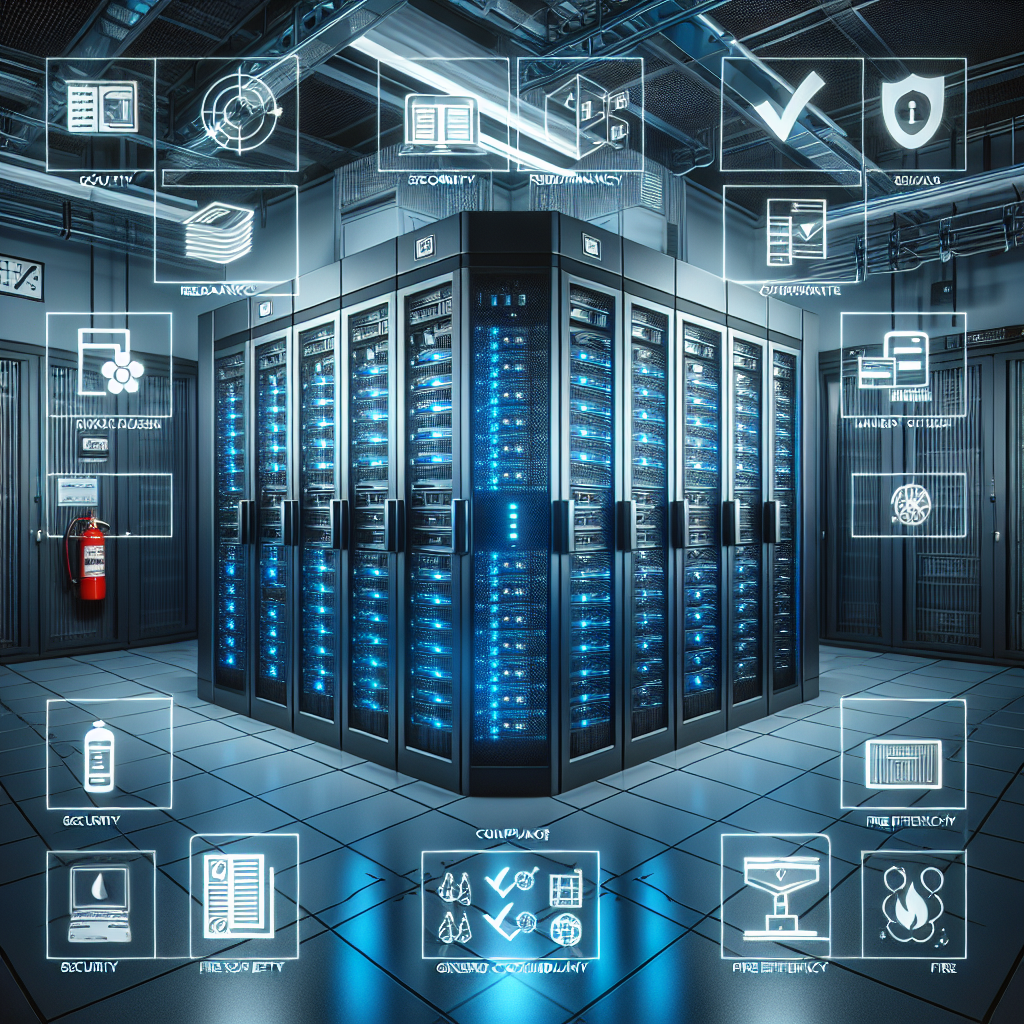Data centers are essential for businesses to store and process their data. With the increasing amount of data being generated and stored, it is crucial for data centers to comply with various regulations and standards to ensure the security and integrity of the data they handle. In this article, we will discuss some key considerations for data center compliance.
1. Regulatory Compliance: One of the most important considerations for data center compliance is adhering to regulatory requirements. Depending on the industry and location of the data center, there may be specific regulations that need to be followed, such as GDPR in Europe, HIPAA in the healthcare industry, or PCI DSS for payment card data. It is essential for data centers to stay up-to-date with these regulations and ensure that they are in compliance to avoid costly fines and penalties.
2. Security: Data centers store sensitive information, so security is a top priority. Data centers should have robust security measures in place to protect against unauthorized access, data breaches, and cyber attacks. This includes physical security measures, such as access controls, surveillance cameras, and security guards, as well as cybersecurity measures, such as firewalls, intrusion detection systems, and encryption.
3. Data Privacy: Data privacy is another important consideration for data center compliance. Data centers must ensure that they are handling personal data in a secure and responsible manner, in line with privacy regulations such as GDPR or CCPA. This includes obtaining consent from individuals before collecting their data, implementing data minimization practices, and providing individuals with the ability to access and delete their data.
4. Disaster Recovery and Business Continuity: Data centers should have robust disaster recovery and business continuity plans in place to ensure that data is protected in the event of a disaster or outage. This includes regular data backups, redundant power and cooling systems, and failover mechanisms to ensure that data can be quickly restored in the event of a disruption.
5. Environmental Compliance: Data centers consume a significant amount of energy and resources, so it is important for them to comply with environmental regulations and standards. This includes implementing energy-efficient practices, such as using renewable energy sources, optimizing cooling systems, and recycling electronic waste.
In conclusion, data center compliance is a complex and multifaceted issue that requires careful consideration of various factors. By adhering to regulatory requirements, implementing robust security measures, prioritizing data privacy, and ensuring disaster recovery and business continuity, data centers can protect the integrity and security of the data they handle. By staying up-to-date with best practices and standards, data centers can mitigate risks and ensure compliance with regulations.


Leave a Reply